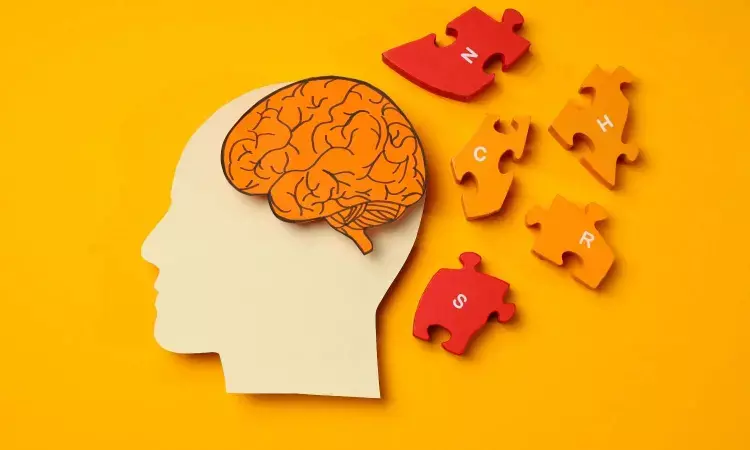- Home
- Medical news & Guidelines
- Anesthesiology
- Cardiology and CTVS
- Critical Care
- Dentistry
- Dermatology
- Diabetes and Endocrinology
- ENT
- Gastroenterology
- Medicine
- Nephrology
- Neurology
- Obstretics-Gynaecology
- Oncology
- Ophthalmology
- Orthopaedics
- Pediatrics-Neonatology
- Psychiatry
- Pulmonology
- Radiology
- Surgery
- Urology
- Laboratory Medicine
- Diet
- Nursing
- Paramedical
- Physiotherapy
- Health news
- Fact Check
- Bone Health Fact Check
- Brain Health Fact Check
- Cancer Related Fact Check
- Child Care Fact Check
- Dental and oral health fact check
- Diabetes and metabolic health fact check
- Diet and Nutrition Fact Check
- Eye and ENT Care Fact Check
- Fitness fact check
- Gut health fact check
- Heart health fact check
- Kidney health fact check
- Medical education fact check
- Men's health fact check
- Respiratory fact check
- Skin and hair care fact check
- Vaccine and Immunization fact check
- Women's health fact check
- AYUSH
- State News
- Andaman and Nicobar Islands
- Andhra Pradesh
- Arunachal Pradesh
- Assam
- Bihar
- Chandigarh
- Chattisgarh
- Dadra and Nagar Haveli
- Daman and Diu
- Delhi
- Goa
- Gujarat
- Haryana
- Himachal Pradesh
- Jammu & Kashmir
- Jharkhand
- Karnataka
- Kerala
- Ladakh
- Lakshadweep
- Madhya Pradesh
- Maharashtra
- Manipur
- Meghalaya
- Mizoram
- Nagaland
- Odisha
- Puducherry
- Punjab
- Rajasthan
- Sikkim
- Tamil Nadu
- Telangana
- Tripura
- Uttar Pradesh
- Uttrakhand
- West Bengal
- Medical Education
- Industry
COVID-19 activates similar inflammatory response in brain as Parkinson's disease

Researchers at the University of Queensland have found in a new study that COVID-19 activates the same inflammatory response in the brain as Parkinson's disease.
Professor Trent Woodruff and Dr Eduardo Albornoz Balmaceda from UQ's School of Biomedical Sciences, and virologists from the School of Chemistry and Molecular Biosciences said that the discovery identified a potential future risk for neurodegenerative conditions in people who've had COVID-19, but also a possible treatment.
"We studied the effect of the virus on the brain's immune cells, 'microglia' which are the key cells involved in the progression of brain diseases like Parkinson's and Alzheimer's," Professor Woodruff said.
"Our team grew human microglia in the laboratory and infected the cells with SARS-CoV-2, the virus that causes COVID-19.
"We found the cells effectively became 'angry', activating the same pathway that Parkinson's and Alzheimer's proteins can activate in disease, the inflammasomes."
Dr Albornoz Balmaceda said triggering the inflammasome pathway sparked a 'fire' in the brain, which begins a chronic and sustained process of killing off neurons.
"It's kind of a silent killer, because you don't see any outward symptoms for many years," Dr Albornoz Balmaceda said.
"It may explain why some people who've had COVID-19 are more vulnerable to developing neurological symptoms similar to Parkinson's disease."
The researchers found the spike protein of the virus was enough to start the process and was further exacerbated when there were already proteins in the brain linked to Parkinson's.
"So if someone is already pre-disposed to Parkinson's, having COVID-19 could be like pouring more fuel on that 'fire' in the brain," Professor Woodruff said.
"The same would apply for a predisposition for Alzheimer's and other dementias that have been linked to inflammasomes."
But the study also found a potential treatment. The researchers administered a class of UQ-developed inhibitory drugs which are currently in clinical trials with Parkinson's patients.
"We found it successfully blocked the inflammatory pathway activated by COVID-19, essentially putting out the fire," Dr Albornoz Balmaceda said.
"The drug reduced inflammation in both COVID-19-infected mice and the microglia cells from humans, suggesting a possible treatment approach to prevent neurodegeneration in the future."
Professor Woodruff said while the similarity between how COVID-19 and dementia diseases affect the brain was concerning, it also meant a possible treatment was already in existence.
Reference:
Albornoz, E.A., Amarilla, A.A., Modhiran, N. et al. SARS-CoV-2 drives NLRP3 inflammasome activation in human microglia through spike protein. Mol Psychiatry (2022). https://doi.org/10.1038/s41380-022-01831-0
Dr Kamal Kant Kohli-MBBS, DTCD- a chest specialist with more than 30 years of practice and a flair for writing clinical articles, Dr Kamal Kant Kohli joined Medical Dialogues as a Chief Editor of Medical News. Besides writing articles, as an editor, he proofreads and verifies all the medical content published on Medical Dialogues including those coming from journals, studies,medical conferences,guidelines etc. Email: drkohli@medicaldialogues.in. Contact no. 011-43720751


